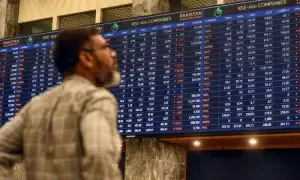Trading volume at Japanese commodity futures exchanges fell modestly in May from the previous month after the introduction of new commodity law that tightens rules on sales tactics and accounting. Traders said it was premature to say if the law, which took effect on May 1, was affecting volume, considering that the commodity market has been generally sluggish, but the market remained nervousness.
Total turnover at seven exchanges, excluding options trade, amounted to 7.99 million contracts in May, down 0.6 percent from 8.04 million in April. On a year-on-year basis, volume fell 27.7 percent, the Japan Federation of Commodity Exchanges Inc said.
"We can't say at present if the new law is actually limiting activity," said a commodity section manager at a major Japanese trading house.
"In order to say if the law is structurally affecting the market, we have to see the trend when commodity prices are moving actively," he said.
Domestic commodity prices in general moved calmly last month, in line with moves in the United States and in Europe.
For example, benchmark April gold futures on the Tokyo Commodity Exchange (TOCOM) were trapped in a 17 yen range of 1,445-1,462 yen for most of the month.
Dollar-based spot gold had also moved in a tight band of $413-434 an ounce during the month.
The downward trend in commodity futures trading could continue for a while, with turnover on the seven exchanges having fallen sharply on a year-on-year basis.
The situation could remain difficult as the law is seen having more impact in undermining volume in the near term as the market has to adjust to the new rules, traders said.
The regulatory changes include rules to restrict what have been seen as high-pressure sales techniques that marred the market's image.
To meet the rule, some commodities brokerages decided to reduce their sales staff, traders said.
The new rules also require accounts of customers and brokerages to be more clearly separated, requiring brokerages to deposit the whole of clients' margin funds at a clearing house.
The clearing house serves as a common platform for all seven commodity exchanges in Japan.
Some brokerages have been limiting their activity after several cases of accounting violations.
BR100
16,405
Increased By
92.5 (0.57%)
BR30
52,938
Increased By
579.1 (1.11%)
KSE100
158,781
Increased By
743.5 (0.47%)
KSE30
48,500
Increased By
249 (0.52%)





















Comments
Comments are closed.